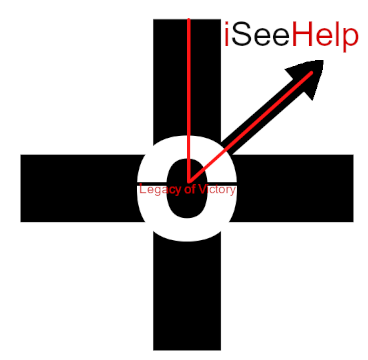Vision
What is your desired outcome?

Many organizations aim to clarify their mission, vision, and values. What does vision mean?
When you want to set boundaries, create a necessary ending or get through pain in your life, you think about what your desired outcome is. That’s your vision.
Your vision is the picture of what you want something to look like in the future. Whether it is your personal or professional life, a vision is key to getting where you want to go. Without one, we flounder and become the result of whatever forces prevail upon us, or in other words, we become victims of circumstance. A vision captures your dreams and lifts your heart and passion to build something of great value. — Dr. Henry Cloud
Wisdom to look ahead with clear vision to see the outcome, the consequences, takes the foggy focus from fools. Quotations from others like A.W. Tozer help weary travelers along the road of life.
Vision Reflects Values
Proverbs is part of the wisdom literature of all time. Proverbs 18 expresses contrasts where words convey vision and values. Play the movie of consequences. Count how many times words are used. Then write down how this chapter influences your vision.
1 Unfriendly people care only about themselves; they lash out at common sense.
2 Fools have no interest in understanding; they only want to air their own opinions.
3 Doing wrong leads to disgrace, and scandalous behavior brings contempt.
4 Wise words are like deep waters; wisdom flows from the wise like a bubbling brook.
5 It is not right to acquit the guilty or deny justice to the innocent.
6 Fools’ words get them into constant quarrels; they are asking for a beating.
7 The mouths of fools are their ruin; they trap themselves with their lips.
8 Rumors are dainty morsels that sink deep into one’s heart.
9 A lazy person is as bad as someone who destroys things.
10 The name of the LORD is a strong fortress; the godly run to him and are safe.
11 The rich think of their wealth as a strong defense; they imagine it to be a high wall of safety.
12 Haughtiness goes before destruction; humility precedes honor.
13 Spouting off before listening to the facts is both shameful and foolish.
14 The human spirit can endure a sick body, but who can bear a crushed spirit?
15 Intelligent people are always ready to learn. Their ears are open for knowledge.
16 Giving a gift can open doors; it gives access to important people!
17 The first to speak in court sounds right — until the cross-examination begins.
18 Flipping a coin can end arguments; it settles disputes between powerful opponents.
19 An offended friend is harder to win back than a fortified city. Arguments separate friends like a gate locked with bars.
20 Wise words satisfy like a good meal; the right words bring satisfaction.
21 The tongue can bring death or life; those who love to talk will reap the consequences.
22 The man who finds a wife finds a treasure, and he receives favor from the LORD.
23 The poor plead for mercy; the rich answer with insults.
24 There are “friends” who destroy each other, but a real friend sticks closer than a brother.

What’s the difference between knowledge and wisdom?
“Knowledge is what is gathered over time through study of the Scriptures. It can be said that wisdom, in turn, acts properly upon that knowledge. Wisdom is the fitting application of knowledge. Knowledge understands the light has turned red; wisdom applies the brakes. Knowledge sees the quicksand; wisdom walks around it. Knowledge memorizes the Ten Commandments; wisdom obeys them. Knowledge learns of God; wisdom loves Him.”
Begin with the end in mind. Evaluate the outcome. See where the road leads. The way of your words makes a difference where you end up. Who is doing the work that lasts for eternity? Surrender is the key. The Holy Spirit is the driver.

